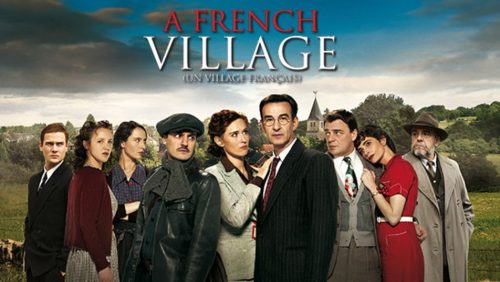And why – in the wake of the latest horrific school massacre. What I mean is the banning of gun ownership in the US, or the abrogation of the Second Amendment, or the passing of so-called “sensible” new gun restrictions (which will be as little-enforced as the last set of so-called “sensible” restrictions). Not going to happen, no matter how emotional the demands by the ban-gun advocates scream, weep, stomp their feet and accuse gun-owners and organizations like the NRA of having blood on their hands. And no, we don’t much care how they do it in Europe, or Britain, or Australia. Weirdly enough, in the United States, the most violent cities are the ones with the most restrictions on personal firearms. Violent crime is generally the preserve of a distinctly urban racial sub-culture, which if omitted from the statistics, presents a very different picture when it comes to violent criminal activity in the US as a whole. That’s an anomaly and discussion for another time, although it does have slight bit of bearing on this one.
Month: February 2018
Seth Barrett Tillman: How My Next Academic Article Begins
Since 2008, I have argued in multiple publications that the Foreign Emoluments Clause’s Office-language (and closely similar language in other constitutional provisions) reaches only appointed federal officers, and not any elected federal officials, including the presidency. My position has not gone entirely unnoticed; indeed, it has even occasioned some firm and thoughtful opposition. My goal in this Article is not to illustrate the full spectrum of views opposing my position on the subject. There are far too many such views—many of which contradict one another—many of which (do not appear to) have gone through any sort of independent review process, by student editors, by peer review, or otherwise. Instead, my more modest goal here is to illustrate how deeply idiosyncratic some of these views are—not merely in their conclusions, but more importantly in their broad methodological approach.
A French Village: Complete Series Now Available

I’ve previously mentioned this series, set in the (fictional) French town of Villeneuve during the years of the German occupation and afterwards. It is simply outstanding – one of the best television series I have ever seen. The program ran from 2009-207 on French TV, and all the seasons are now available in the US, with subtitles. Having now watched the whole thing, my very positive opinion of the series is sustained.
Daniel Larcher is a physician who also serves as deputy mayor, a largely honorary position. When the regular mayor disappears after the German invasion, Daniel finds himself mayor for real. His wife Hortense, a selfish and emotionally-shallow woman, is the opposite of helpful to Daniel in his efforts to protect the people of Villaneuve from the worst effects of the occupation while still carrying on his medical practice. Daniel’s immediate superior in his role as mayor is Deputy Prefect Servier, a bureaucrat mainly concerned about his career and about ensuring that everything is done according to proper legal form.
The program is ‘about’ the intersection of ultimate things…the darkest evil, the most stellar heroism….with the ‘dailyness’ of ordinary life, and about the human dilemmas that exist at this intersection. Should Daniel have taken the job of mayor in the first place?…When is it allowable to collaborate with evil, to at least some degree, in the hope of minimizing the damage? Which people will go along, which will resist, which will take advantage? When is violent resistance…for example, the killing by the emerging Resistance of a more or less random German officer…justified, when it will lead to violent retaliation such as the taking and execution of hostages?
Arthur Koestler has written about ‘the tragic and the trivial planes’ of life. As explained by his friend, the writer and fighter pilot Richard Hillary:
“K has a theory for this. He believes there are two planes of existence which he calls vie tragique and vie triviale. Usually we move on the trivial plane, but occasionally in moments of elation or danger, we find ourselves transferred to the plane of the vie tragique, with its non-commonsense, cosmic perspective. When we are on the trivial plane, the realities of the other appear as nonsense–as overstrung nerves and so on. When we live on the tragic plane, the realities of the other are shallow, frivolous, frivolous, trifling. But in exceptional circumstances, for instance if someone has to live through a long stretch of time in physical danger, one is placed, as it were, on the intersection line of the two planes; a curious situation which is a kind of tightrope-walking on one’s nerves…I think he is right.”
In this series, the Tragic and the Trivial planes co-exist…day-to-day life intermingles with world-historical events. And the smallness of the stage…the confinement of the action to a single small village….works well dramatically, for the same reason that (as I have argued previously) stories set on shipboard can be very effective.
New! – Your 2018 Poorer-But-Wiser Haiku Blowout

Minor hurricanes:
Always worse than expected
With much long-term harm.
—-
She cares not a whit
About your gearhead hobbies,
But your words – watch out.
—-
Earnings out today.
They killed volatility.
Those calls you bought? Ha.
—-
Your lawn guy vanished.
Perhaps he was deported?
That’s the way to bet.
Seth Barrett Tillman: How My Next Academic Paper Ends: The Way Forward
First, the commentators above (along with other commentators) believe their position carries a strong presumption of correctness (if not certitude), that it is my duty to displace that presumption, and that they will be the judges if I have carried that burden. Certainly, I have never agreed to such terms for this debate. Nor should I. The text of the Constitution does not expressly state that the Foreign Emoluments Clause applies to the President. The text of the Constitution does not expressly define the scope of the Constitution’s “Office of Profit or Trust under [the United States]” language. The Supreme Court has had no occasion to address the scope of the clause or the meaning of the clause’s operative language (or even the scope of similar language in other clauses.). As educated generalists who have chosen to recently inject themselves into this debate, their opinions should get a hearing. I would add: so should mine. And since, what is involved here is a debate between opinions lacking firm judicial support, our divergent ideas (and we) meet as equals. I add that the Legal Historians are supporting the plaintiffs in active litigation. Generally, in civil litigation, the burden of proof, production, and persuasion falls on the plaintiff, not on the defendant.
Second, it is time for my intellectual opponents to be fair. Claims that they have made that they know or now know to be incorrect should be withdrawn or revised. Claims that they have made asserting the existence of documentary support, should be supported, and promptly, with actual documents—or else the claims should be withdrawn. If they have to go through this process repeatedly, they might ask themselves if their position (and expertise) is really as strong as they have led themselves and others to believe.
Third, it is time for my intellectual opponents to be forthcoming in regard to an improved debate and debate atmosphere—an atmosphere rooted in mutual respect and goodwill…